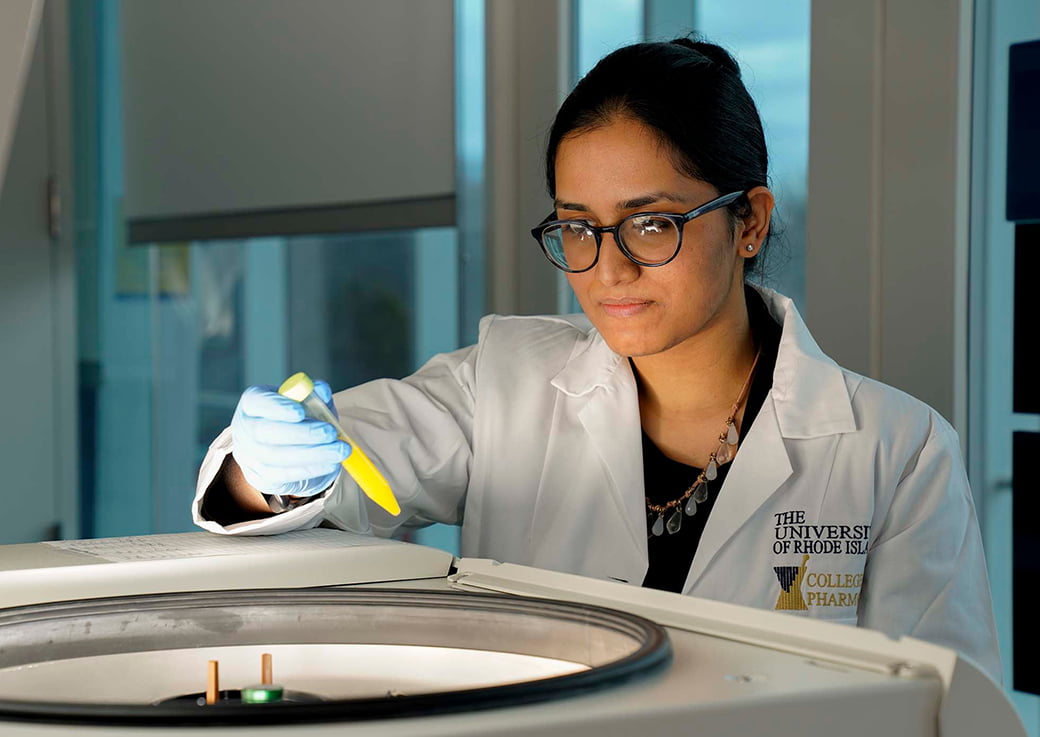BE Alumna Advances White House Moonshot

Jyothi Menon, a Ph.D. graduate of the dual program in bioengineering between UT Southwestern and UTA, is at the forefront of groundbreaking research aimed at combatting hepatocellular carcinoma (HCC), the fastest-growing cause of cancer-related fatalities worldwide. This lethal disease is primarily linked to chronic alcohol liver disease. The journey from heavy alcohol consumption to fatty liver, hepatitis, and ultimately cirrhosis exponentially elevates the risk of cancer development. However, treatment for alcohol liver disease and its associated fibrosis has been plagued by challenges such as poor pharmacokinetics, toxicity concerns, and the intricacies of targeting therapies precisely to liver cells.
Menon, now an associate professor at the University of Rhode Island College of Pharmacy, is spearheading an initiative to harness the power of specialized nanoparticles which can selectively pinpoint liver cells responsible for hepatic fibrosis, significantly enhance drug penetration into fibrotic liver tissue, administer vital medications, and orchestrate the timed release of therapeutics.
Her research is funded by the National Institutes of Health's National Cancer Institute and the Biden Cancer Moonshot initiative, a White House program dedicated to nurturing early-career researchers and fostering diversity within the field of cancer research.
Menon crafts nanoparticles from polymers and lipids, custom-tailored to target liver macrophages. By suppressing cell signaling pathways implicated in the development of hepatocellular carcinoma (HCC), the nanoparticles, which are approximately 1000 times smaller than the width of a human hair, effectively traverse biological barriers, safeguarding their precious cargo from degradation. These nanoparticles are meticulously designed to zero in on and activate Gpbar1, a protein found within the liver's Kupffer cells, ultimately quelling inflammation and fibrosis in the liver.
"Kupffer cell targeting is something not a lot of people have explored, despite its role in liver disease initiation and development. Most drugs are inherently non-specific and can go anywhere in the body. In this research, we propose to deliver the nanoparticles intravenously, following which they will arrive at the liver, and recognize and bind to the proteins on the Kupffer cells," Menon said.
Beyond their role in activating cell surface proteins, the nanoparticles serve as delivery vehicles for anti-fibrotic and anti-cancer therapies. They can be engineered to release medication in a sustained manner over time.
While Menon's current project primarily addresses liver inflammation stemming from alcohol liver disease, its potential applications extend to liver inflammation caused by other factors such as a high-fat diet, drug use, and even certain prescribed medications.
The burden of liver disease is anticipated to surge two- to threefold in the next decade. Menon's overarching goal is to develop preventive interventions that can reduce the likelihood of advanced liver disease progressing to HCC. In addition to alcohol-associated fibrosis, she aspires to leverage her findings to devise improved therapeutic strategies for various chronic liver diseases.